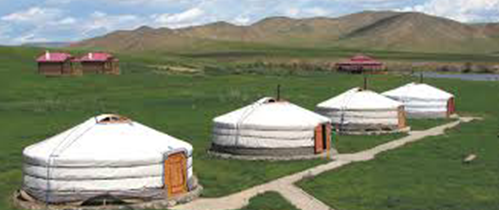About Mongolia
Once the heartland of an empire stretching to Europe under Genghis Khan, Mongolia is a landlocked country dominated by sparsely populated steppe and semi-desert. In 1990 Mongolia abandoned its 70-year-old Soviet-style one-party state thereby making significant strides in achieving macroeconomic stability and fundamental structural reforms, thereby enshrining democracy and privatization in a new constitution. The country’s entry into market economy and introducing parliamentary democracy was welcomed by many countries across globe, including India.
Mongolia's economy is centered on agriculture and mining further enriched with the mineral resources such as copper, coal, molybdenum, tin, tungsten, and gold account for a large part of industrial production. The Mongolian Stock Exchange, established in 1991 in the capital city Ulan Bator, is the world's smallest stock exchange by market capitalization.
Some technology companies from nearby countries, such as South Korea, China, etc have tended to focus on software development. Foreign investment from other countries is helping Mongolia gain International status. The Trans-Mongolian Railway is the main rail link connecting Mongolia and its neighbors. Mongolia has a number of domestic airports; the only international airport is the Chinggis Khaan International Airport near Ulaanbaatar. The main festival is Naadam and Wrestling being the most popular of all Mongol sports.

